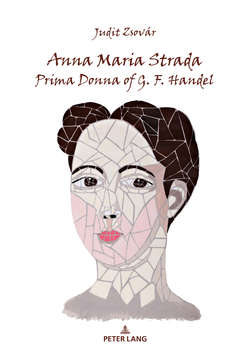Читать книгу Anna Maria Strada, Prima Donna of G. F. Handel - Judit Zsovár - Страница 17
На сайте Литреса книга снята с продажи.
Finances
ОглавлениеFinancial relations in the world of eighteenth-century opera were widely disproportionate. The whole system was focused on singers, especially the castrati, and leading female roles, who earned the most. The composer less than half of it, and the librettist even less still. Singers received free lodgings, travel expenses, and costumes, not to mention a variety of special extras, such as jewels, flowers, and sonnets given by noble patrons and admirers. The ‘thousands of scudi’ mentioned in Il teatro as singers’ wages is not a hyperbole:105 a star prima donna like Faustina Bordoni earned 1,200 zecchini (equal to 4,258 ducats) in the 1724/25 season at S. G. Grisostomo, Antonia Merighi 1,900 ducats, and Rosaura Mazzanti’s salary was 12,750 lire (ca 2,056 ducats) at Sant’Angelo in the same season.106 Contrarily, a composer’s fee for an opera score was usually 200 ducats, which for a whole season (typically 3‒4 works) meant an annual salary of 600‒800 ducats. A seconda or terza donna’s pay per season was about 600 ducats, or 150‒200 ducats per production. As Strada sang in four operas at ←44 | 45→Sant’Angelo in 1720/21, her wages might have been around 700 ducats, considering her rank and debutant status.107
Besides her fellow singers at the Sant’Angelo company, Strada must have had opportunities to hear some of the most famous female voices of her era: those of the mezzo-soprano Faustina Bordoni, the lyric soprano Francesca Cuzzoni, and the contralto Diana Vico, who were all prominent members of operatic high society. They appeared together in Francesco Pollarolo’s Lucio Papirio dittatore, premiered on 26 December 1720, and in Orlandini’s Nerone, which ran from 11 February 1721. Sitting in one of the performances, Strada could hardly ever have imagined that four years later she would sing together with Vico and been paired with Farinelli, nor that in nine years she would have been the successor to the ‘rival queens’ Cuzzoni and Faustina in London under Handel, and been called a better one than the two together.
